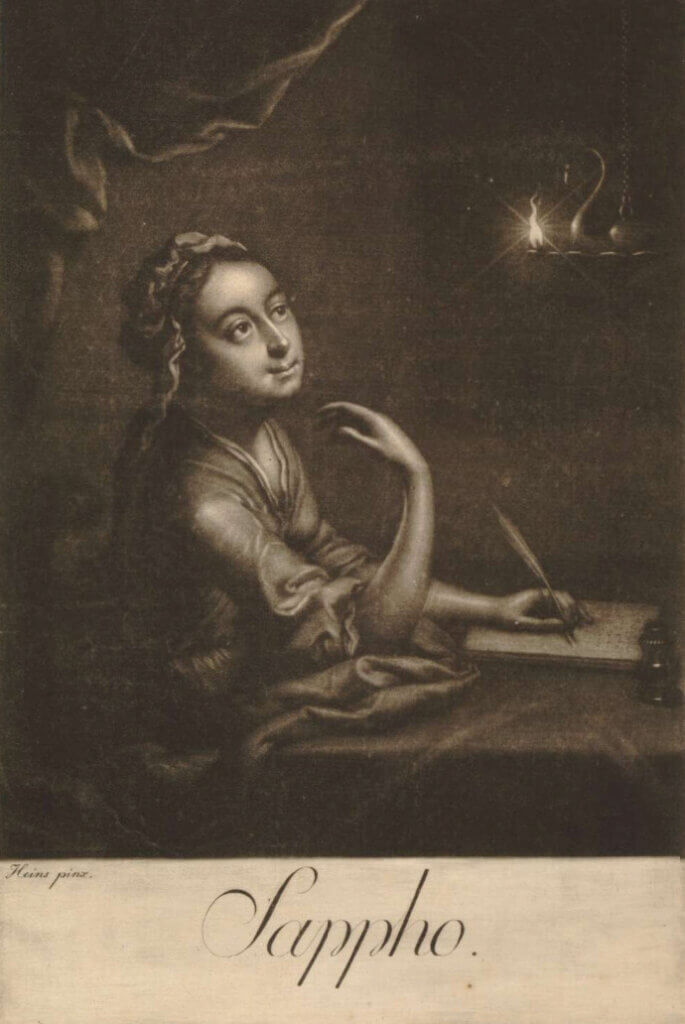Daughters of Sappho. Literary Multilingualism and Gender in the Enlightenment

In my current book project Daughters of Sappho: Literary Multilingualism and Gender in the Enlightenment, I explore the convergences between translingual writing and female literary traditions. My project builds on contemporary research on multilingualism and is significantly influenced by Gloria Anzaldúa, Hélène Cixous, and Yoko Tawada, whose reflections on translingualism also play an important role in my analysis of multilingual literature in the eighteenth century. This includes, for instance, the creative potential of failure and error – a concept that is evident not only in the writing of Tawada, a German Japanese author but also in the French poetry of the eighteenth century Portuguese writer Leonor de Almeida. Multilingual women writers of the Enlightenment distinguish themselves from the male connotated aesthetics of genius through their affirmation of imitation.
This can be observed in their engagement with Sappho, whom the authors I study repeatedly grapple with through translations and adaptations. They do this because she provides a paradigm through which they can inscrib e themselves into a literary tradition constituted by women. The book mostly analyzes the work of women who wrote in French or translated from French. Apart from the already mentioned Almeida, the corpus includes translations and critical texts from the philologist Anne Dacier, translingual letters and a travelogue of Marie Jeanne Riccoboni and Anne Marie du Boccage as well as a Spanish version of Françoise de Graffigny’s popular epistolary novel Lettres d’une Péruvienne.
Links
• Multilingualism in the Enlightenment, blog post Café Lumières, University of Oxford, Voltaire Foundation, IZEA Halle